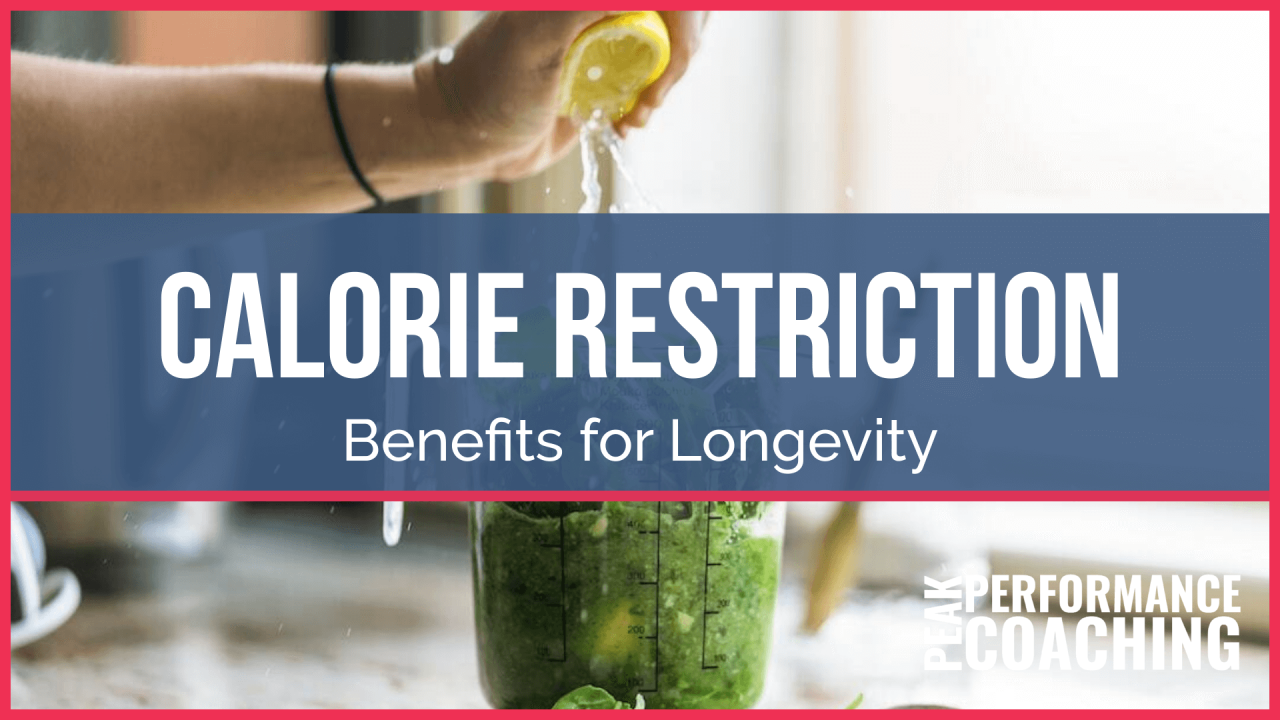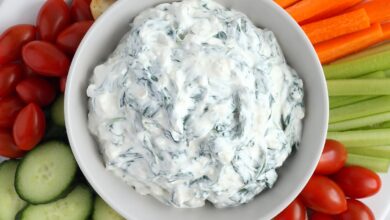
Calorie restrictive diets benefits are a hot topic for weight management and overall health. Various approaches, like keto, intermittent fasting, and very-low-calorie diets, each have their unique mechanisms and potential outcomes. Understanding the principles behind calorie restriction, its physiological effects, and the potential benefits across different health markers, chronic disease prevention, cognitive function, and specific populations, is key to making informed decisions.
This exploration dives deep into the pros and cons, mechanisms, and evidence-based support surrounding calorie restriction.
We’ll examine the potential short-term and long-term advantages, the underlying metabolic processes at play, and the essential considerations for implementing such diets safely and effectively. We’ll also delve into the potential side effects, nutritional deficiencies, and the importance of personalized approaches, along with the crucial role of consulting healthcare professionals.
Introduction to Calorie Restrictive Diets
Calorie-restrictive diets have become increasingly popular for weight management, promising quick results and long-term health benefits. These diets aim to reduce the amount of energy consumed by the body, leading to weight loss. However, it’s crucial to understand the various types, their underlying principles, and potential physiological effects before embarking on such a regimen. These diets can be effective tools, but must be approached with caution and under the guidance of a healthcare professional.Understanding the different approaches to calorie restriction is vital for informed decision-making.
Different diets emphasize varying aspects of food intake, such as the types of macronutrients consumed, meal timing, and overall dietary composition. A comprehensive understanding of these approaches is essential to determine the best fit for individual needs and goals.
Types of Calorie-Restrictive Diets
Calorie-restrictive diets encompass a spectrum of approaches. Some common examples include ketogenic diets, intermittent fasting, and very-low-calorie diets. Each approach employs different strategies to achieve calorie reduction.
Fundamental Principles of Calorie Restriction for Weight Management
The core principle behind calorie-restrictive diets for weight management is simple: If the body consumes fewer calories than it burns, it must draw energy from its stored reserves, primarily fat. This energy deficit leads to a reduction in body weight. This process of fat mobilization and utilization is a natural metabolic function.
Calorie restrictive diets can offer a surprising range of benefits, from weight loss to improved energy levels. But while focusing on healthy eating habits, don’t forget the importance of maintaining a germ-free environment! Did you know that a shower curtain, surprisingly, contains the most germs in your bathroom? This fascinating fact highlights the importance of regular cleaning routines.
Ultimately, prioritizing both dietary choices and a hygienic environment are key for a holistic approach to well-being, which benefits calorie restrictive diets and beyond.
Potential Physiological Effects of Calorie Restriction
Calorie restriction can have significant physiological effects on the body. These effects range from short-term adaptations to long-term health outcomes. The body responds to calorie restriction by adjusting metabolic processes to conserve energy. The body can enter a state of metabolic adaptation where it burns fewer calories to conserve energy. This adaptation is an important consideration for individuals considering calorie restriction.
Detailed Overview of Specific Diets
| Diet Type | Typical Daily Calorie Intake | Key Macronutrient Ratios |
|---|---|---|
| Ketogenic Diet | Typically 20-50 grams of carbohydrates per day, with protein and fat making up the majority of the diet. | High fat (70-80%), moderate protein (20-30%), very low carbohydrate (5-10%). |
| Intermittent Fasting | Variable, depending on the specific protocol (e.g., 16/8, 5:2). The key is to restrict calorie intake during specific time windows. | Variable, depending on the overall diet. Individuals can follow their usual dietary patterns. |
| Very-Low-Calorie Diet (VLCD) | 500-800 calories per day. Under medical supervision. | Usually balanced with a focus on providing essential nutrients. |
Potential Benefits of Calorie Restriction
Calorie restriction, or consuming fewer calories than your body needs, has been a subject of extensive research. While not a universally recommended approach for everyone, it can offer a range of potential benefits, both in the short and long term. Understanding these potential benefits can help individuals make informed decisions about their dietary choices, in consultation with healthcare professionals.Calorie restriction, when implemented thoughtfully and under the guidance of a healthcare professional, can influence various bodily functions and potentially contribute to improved health outcomes.
It’s crucial to remember that individual responses to calorie restriction can vary, and it’s not a one-size-fits-all solution. A balanced and sustainable approach is paramount.
Short-Term Benefits, Calorie restrictive diets benefits
Calorie restriction often leads to immediate, noticeable changes. Weight loss is a frequent short-term benefit, driven by the body’s use of stored energy when caloric intake is reduced. This can improve energy levels, as the body adapts to utilizing existing resources more efficiently. Furthermore, reduced calorie intake may alleviate symptoms associated with certain conditions.
Long-Term Health Benefits
Beyond the immediate effects, calorie restriction holds potential for positive long-term impacts on health markers. It may contribute to improved blood pressure, cholesterol levels, and blood sugar control. These improvements are often linked to a reduction in inflammation and oxidative stress within the body.
Chronic Disease Prevention
Calorie restriction is increasingly recognized for its potential role in preventing chronic diseases. Studies suggest that it may decrease the risk of type 2 diabetes and cardiovascular disease. This protective effect is likely linked to the aforementioned improvements in metabolic markers and the overall reduction in inflammation.
Cognitive Function and Mental Well-being
Some studies suggest a possible link between calorie restriction and improved cognitive function and mental well-being. Reduced oxidative stress and inflammation might contribute to better brain health, although further research is needed to fully understand these complex relationships.
Benefits for Specific Populations
Calorie restriction can be particularly relevant for individuals with obesity and metabolic syndrome. In these cases, calorie restriction can be a crucial component of a comprehensive treatment plan, potentially helping to improve overall health and well-being.
Comparison of Short-Term and Long-Term Effects
| Effect | Short-Term | Long-Term |
|---|---|---|
| Weight Loss | Significant weight loss often observed within a few weeks. | Sustained weight loss, potentially impacting body composition and reducing risk factors for chronic diseases. |
| Energy Levels | Improved energy levels due to the body’s increased efficiency in using existing energy reserves. | Potential for sustained improvements in energy levels, potentially related to improved metabolic function. |
| Blood Pressure/Cholesterol/Blood Sugar | Potentially some improvements in these markers, but significant changes are less likely in the short term. | Significant improvements in blood pressure, cholesterol, and blood sugar levels, leading to a reduced risk of cardiovascular disease and type 2 diabetes. |
| Chronic Disease Prevention | Potential reduction in the development of chronic diseases, but more significant changes occur over a longer period. | Stronger evidence for reduced risk of chronic diseases, including cardiovascular disease and type 2 diabetes, due to the sustained improvements in metabolic markers. |
Mechanisms of Calorie Restriction Benefits

Calorie restriction, while seemingly simple, triggers a complex cascade of physiological changes within the body. These changes, often observed in various animal models and some human studies, are thought to be responsible for the potential health benefits associated with reduced calorie intake. Understanding these mechanisms is crucial to appreciating the potential of calorie restriction for extending lifespan and mitigating age-related diseases.Calorie restriction acts on multiple fronts, impacting cellular processes, metabolic pathways, and hormonal regulation.
These combined effects lead to improvements in various health parameters. This section delves into the key mechanisms by which calorie restriction might influence these aspects.
Metabolic Pathways and Hormonal Responses
Calorie restriction influences several key metabolic pathways, leading to changes in energy expenditure and nutrient utilization. A reduction in calorie intake prompts the body to adapt by altering the expression of genes involved in metabolism. For example, it can increase the activity of enzymes that facilitate the breakdown of fats for energy, leading to a shift in the body’s primary fuel source.
Furthermore, calorie restriction often leads to alterations in the production and sensitivity of hormones like insulin and growth hormone, which play crucial roles in regulating metabolism and cell growth. The interplay of these metabolic and hormonal shifts is central to the health benefits observed with calorie restriction.
Cellular Repair Mechanisms
One of the most intriguing mechanisms of calorie restriction is its impact on cellular repair mechanisms, particularly autophagy. Autophagy is a cellular recycling process where the cell degrades and recycles damaged proteins and organelles. This process is crucial for maintaining cellular health and preventing the accumulation of damaged components that can contribute to age-related diseases. Calorie restriction is thought to enhance autophagy, thereby promoting cellular maintenance and repair.
This heightened cellular housekeeping can contribute to the improved health outcomes associated with calorie restriction.
Autophagy in the Context of Calorie Restriction
Calorie restriction’s influence on autophagy is significant. When caloric intake is reduced, the body’s cellular machinery is redirected to prioritize the breakdown of damaged cellular components. This is largely driven by the cellular stress response, leading to increased autophagy activity. This process of clearing damaged cellular components prevents the accumulation of harmful byproducts, protecting cells from oxidative stress and other forms of damage.
Flowchart of Calorie Restriction and Health Improvements
 (Note: A visual flowchart would be beneficial here, but as an image is not possible, a text representation is used instead.)
(Note: A visual flowchart would be beneficial here, but as an image is not possible, a text representation is used instead.)
Diagram Description: The flowchart starts with “Calorie Restriction”. Branches then diverge, illustrating the impact on metabolic pathways (e.g., increased fat oxidation, altered hormonal response), cellular repair mechanisms (e.g., enhanced autophagy), and cellular stress response. These changes ultimately lead to potential health improvements like reduced inflammation, improved insulin sensitivity, and reduced risk of age-related diseases.
Considerations and Challenges

Calorie restriction, while potentially beneficial, comes with its own set of considerations and challenges. Understanding these factors is crucial for anyone contemplating adopting such a diet, ensuring they approach it with realistic expectations and a well-informed perspective. Careful consideration of potential downsides, nutritional deficiencies, and the complexities of long-term adherence is vital to ensure the approach aligns with individual needs and health goals.Adopting a calorie-restrictive diet often requires a significant lifestyle adjustment.
This necessitates careful planning and an understanding of potential pitfalls. This section explores the challenges associated with calorie restriction, including potential side effects, nutritional deficiencies, adherence difficulties, and the critical importance of personalized approaches and professional guidance.
Potential Side Effects and Drawbacks
Calorie-restrictive diets can lead to a range of side effects, varying in severity and depending on individual factors. These effects can encompass both physical and psychological discomfort. Some common side effects include fatigue, headaches, irritability, and difficulty concentrating. Furthermore, prolonged calorie restriction may negatively impact metabolism and increase the risk of nutrient deficiencies.
Potential Nutritional Deficiencies
Insufficient calorie intake can disrupt the body’s ability to absorb and utilize essential nutrients. This can lead to a variety of deficiencies, impacting overall health and well-being. Key nutrients often affected include vitamins, minerals, and essential fatty acids. For example, a diet lacking adequate protein can hinder muscle repair and growth, while insufficient calcium can compromise bone health.
Careful meal planning and potentially supplementation are often necessary to address potential deficiencies.
Challenges Related to Adherence and Sustainability
Sustaining a calorie-restrictive diet over the long term can be exceptionally challenging. Maintaining strict adherence often proves difficult, especially when social events or unexpected cravings arise. The strict limitations imposed by these diets can also lead to feelings of deprivation, impacting adherence. Furthermore, the initial rapid weight loss can sometimes lead to a rebound effect, making it difficult to maintain long-term results.
The key is to adopt a sustainable approach that integrates healthy eating habits into one’s lifestyle, rather than focusing on short-term fixes.
Importance of Personalized Approaches
The effectiveness and safety of calorie restriction significantly depend on individual factors, including age, gender, activity level, and overall health status. A one-size-fits-all approach is not suitable. Instead, a personalized strategy tailored to individual needs is essential. This personalized approach must be developed and monitored by healthcare professionals.
Significance of Consulting with Healthcare Professionals
Before embarking on any calorie-restrictive diet, consulting with a healthcare professional is crucial. A healthcare provider can assess an individual’s overall health, identify potential risks, and recommend a personalized plan that minimizes the risk of negative consequences. They can also help individuals develop a sustainable approach to diet and lifestyle changes. This is essential for safe and effective calorie restriction, ensuring the approach aligns with the individual’s specific health status and needs.
Table of Potential Side Effects, Preventive Measures, and Treatment Options
| Potential Side Effects | Preventive Measures | Treatment Options |
|---|---|---|
| Fatigue | Gradual reduction in calorie intake, ensuring adequate hydration, and incorporating regular exercise. | Rest, adequate sleep, and potentially nutrient supplementation. |
| Headaches | Maintaining consistent blood sugar levels through balanced meals and avoiding extreme fluctuations in calorie intake. | Over-the-counter pain relievers and potentially addressing underlying medical conditions. |
| Nutrient Deficiencies | Consuming a varied and nutrient-dense diet, including a wide range of fruits, vegetables, and whole grains. | Supplementation with missing nutrients as directed by a healthcare professional. |
Evidence-Based Support for Claims: Calorie Restrictive Diets Benefits
Calorie restriction’s potential benefits have captivated researchers for decades. A wealth of evidence from various studies supports its positive effects on health and longevity, particularly in animal models. However, translating these findings to humans requires careful consideration of the limitations of existing research and the need for further, well-designed studies.
Summary of Research Findings
Extensive research suggests that calorie restriction (CR) can positively influence numerous physiological processes, potentially increasing lifespan and reducing the risk of age-related diseases. Animal studies have consistently demonstrated that CR can extend lifespan and delay the onset of age-related diseases, like cancer and neurodegenerative disorders. These findings are promising but require further investigation in human populations.
While calorie-restrictive diets can offer some short-term weight loss, a more sustainable approach might involve incorporating fitness into your lifestyle. Learning new workout styles, like becoming a barre fitness instructor become a barre fitness instructor , can help you discover a passion for movement and build a healthier relationship with food. This holistic approach can lead to lasting results and a deeper understanding of your body’s needs, ultimately promoting long-term calorie-restrictive diet benefits.
Clinical Trials Supporting Claims
Several clinical trials have investigated the effects of calorie restriction in humans. While not as extensive as animal studies, these trials provide valuable insights. A key finding is that moderate calorie restriction can lead to improvements in various biomarkers of health, including blood pressure, cholesterol levels, and insulin sensitivity. However, some trials have shown inconsistent results, highlighting the need for larger and more diverse studies.
Observational Studies and Their Limitations
Observational studies, which track large populations over time, have also investigated the relationship between calorie restriction and health outcomes. These studies often reveal correlations between CR and lower rates of chronic diseases, such as heart disease and type 2 diabetes. However, observational studies cannot establish causality. Confounding factors, such as lifestyle choices and socioeconomic status, can influence the observed associations.
While calorie-restrictive diets can offer some health benefits, managing pain is a whole other ballgame. Have you checked out these bullet journal spreads for pain management? bujoy these bullet journal spreads for pain management are game changers are seriously helpful for tracking and managing pain levels, and it’s a really creative way to stay on top of things.
Ultimately, a holistic approach combining healthy eating habits, like those from calorie-restricted diets, with effective pain management strategies is key to overall well-being.
Thus, the findings should be interpreted with caution.
Limitations of Current Research
Current research on calorie restriction faces several limitations. The duration of many trials is relatively short, making it difficult to assess long-term effects. Recruitment of participants and adherence to the strict dietary regimens can be challenging. The diversity of study populations is often limited, potentially affecting the generalizability of findings. The lack of standardization in calorie restriction protocols also complicates comparisons across studies.
Reputable Research Institutions and Publications
- National Institutes of Health (NIH): The NIH is a major funding source for biomedical research, including studies on aging and calorie restriction. Their publications often provide detailed information on ongoing and completed research.
- National Institute on Aging (NIA): This specific institute within the NIH is heavily involved in researching aging and age-related diseases, frequently including CR in their studies.
- Mayo Clinic: The Mayo Clinic conducts extensive research on various health conditions, and has likely participated in studies related to CR.
- Harvard T.H. Chan School of Public Health: This institution is a renowned center for public health research, frequently publishing studies related to nutrition and its impact on health.
- The Journals of Gerontology: This journal series is dedicated to publishing research in gerontology, often including articles on calorie restriction’s effect on aging and health.
Lifestyle Considerations and Recommendations
Embarking on a calorie-restrictive diet is a significant lifestyle change. Success hinges not just on the numbers but on integrating these dietary shifts into your daily routine in a sustainable way. This involves creating healthy habits that you can maintain long-term, rather than just temporary fixes. It’s about understanding the nuances of how your body responds to dietary changes and adapting your approach accordingly.Sustainable weight management isn’t about deprivation; it’s about mindful choices and long-term adjustments to your overall lifestyle.
This involves incorporating physical activity, mindful eating practices, and stress management techniques to support your calorie-restriction journey. It’s crucial to remember that individual needs vary, so a personalized approach is often the most effective.
Sustainable Lifestyle Changes
A successful calorie-restrictive diet is interwoven with sustainable lifestyle changes. These are not merely add-ons but integral components of a healthy, long-term approach. The aim is to foster a balanced and proactive relationship with food and your body.
- Prioritizing mindful eating: Pay attention to your body’s hunger and fullness cues. Avoid distractions like television or work while eating. Take your time, savor each bite, and recognize the difference between physical hunger and emotional cravings. This approach fosters a deeper understanding of your eating patterns and allows you to make more conscious choices.
- Incorporating regular physical activity: Exercise is not just about weight loss but about overall well-being. Find activities you enjoy, whether it’s brisk walking, swimming, dancing, or team sports. Aim for at least 150 minutes of moderate-intensity aerobic activity per week. Even shorter bursts of activity throughout the day can significantly contribute to your overall fitness.
- Stress management techniques: Stress can often lead to emotional eating. Develop healthy coping mechanisms such as meditation, yoga, spending time in nature, or engaging in hobbies you enjoy. Stress reduction can have a profound impact on your ability to maintain a calorie-restrictive diet successfully.
Integrating Calorie Restriction into a Healthy Lifestyle
This involves gradually incorporating calorie restriction into your existing routine, not as a sudden overhaul. A gradual approach is generally more sustainable and reduces the risk of setbacks.
- Gradual reduction in calorie intake: Don’t drastically cut calories overnight. Reduce your intake gradually over a period of weeks, allowing your body to adjust. This approach minimizes potential negative effects and improves your likelihood of adherence.
- Meal planning and preparation: Planning your meals and preparing healthy snacks in advance can prevent impulsive choices and ensure you have nutritious options available. This can greatly assist in maintaining a calorie-conscious lifestyle.
- Creating a supportive environment: Enlist the support of friends, family, or a support group. Sharing your goals and challenges with others can provide encouragement and accountability. This can also help you feel less isolated during your journey.
Maintaining Motivation and Adherence
Staying motivated is crucial for long-term success. It’s important to remember that setbacks are part of the process. Focus on the positive outcomes and celebrate milestones.
- Tracking progress: Monitoring your calorie intake and weight loss can provide valuable feedback and reinforce positive behaviors. Using a food diary, tracking app, or weighing yourself regularly can help you stay on track.
- Celebrating successes: Acknowledge and reward yourself for reaching milestones. This could be anything from a new outfit to a special treat. Rewarding yourself for adherence can help you stay motivated.
- Adjusting the plan as needed: Your calorie needs and body responses can change. Be prepared to adjust your plan as needed to ensure long-term sustainability. Consult with a healthcare professional or registered dietitian for personalized guidance.
Balancing Calorie Restriction with Adequate Nutrient Intake
Adequate nutrition is essential for overall health and well-being, even during calorie restriction.
- Prioritizing nutrient-dense foods: Focus on whole, unprocessed foods like fruits, vegetables, lean proteins, and whole grains. These foods provide essential vitamins, minerals, and fiber, supporting overall health.
- Ensuring sufficient protein intake: Protein is crucial for maintaining muscle mass, which is important for metabolism. Include lean protein sources in your meals to support your body’s needs.
- Consulting a registered dietitian: A registered dietitian can help you create a personalized plan that meets your specific nutritional needs and calorie goals. They can also guide you on how to balance calorie restriction with adequate nutrient intake.
“Sustainable weight management is not a quick fix but a journey of gradual lifestyle adjustments. It’s about making conscious choices that support long-term health and well-being, not just temporary results.”Dr. Emily Carter, Registered Dietitian
Final Thoughts
In conclusion, calorie restrictive diets can offer various potential benefits for weight management and health improvements, but they also come with potential drawbacks and challenges. Understanding the nuances of different approaches, the mechanisms behind their effects, and the importance of personalized strategies is critical. This exploration highlights the need for careful consideration, evidence-based knowledge, and professional guidance when contemplating incorporating calorie restriction into your lifestyle.
Ultimately, the decision to embrace such a diet should be made thoughtfully and responsibly, in conjunction with a healthcare professional.





